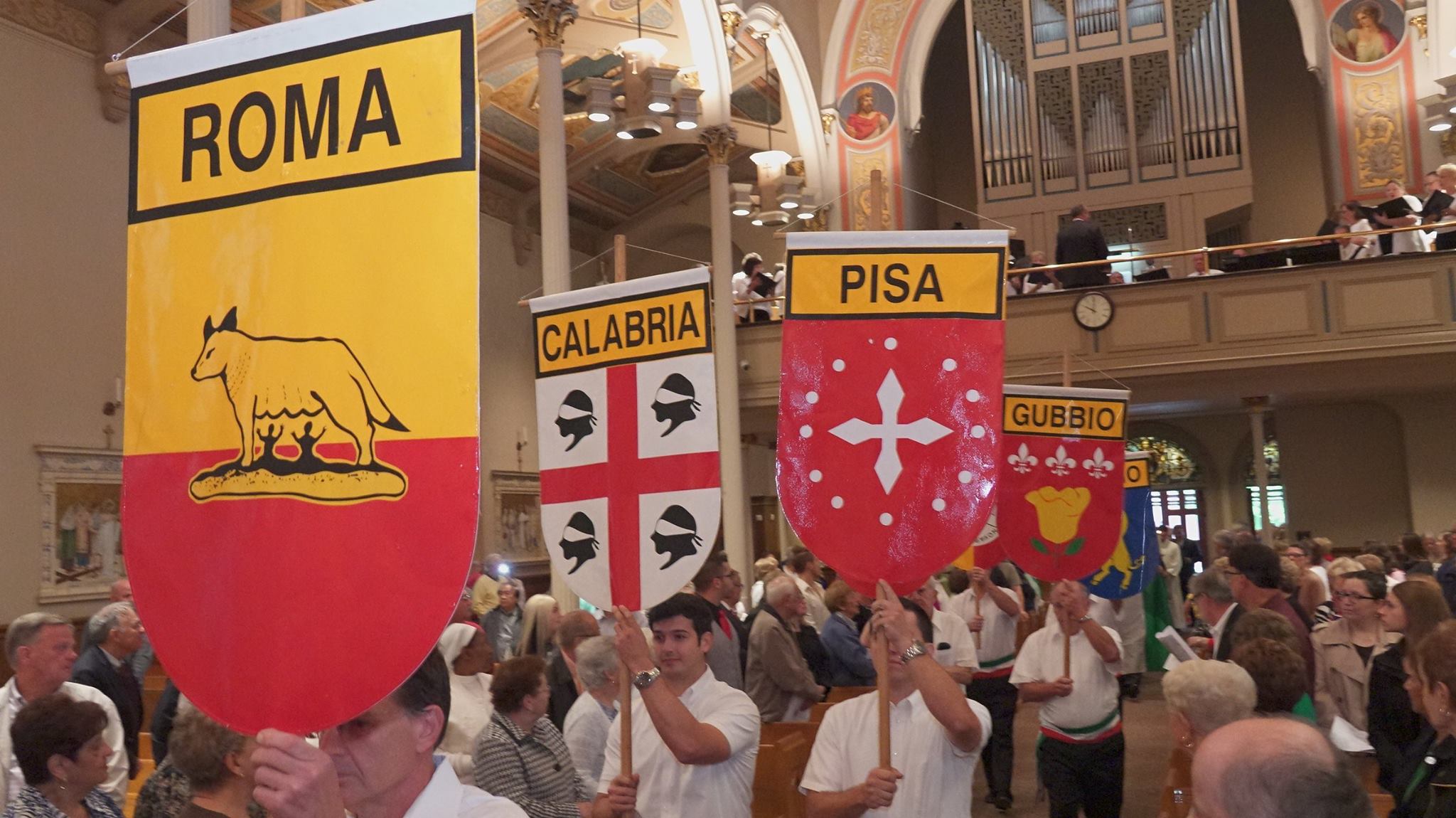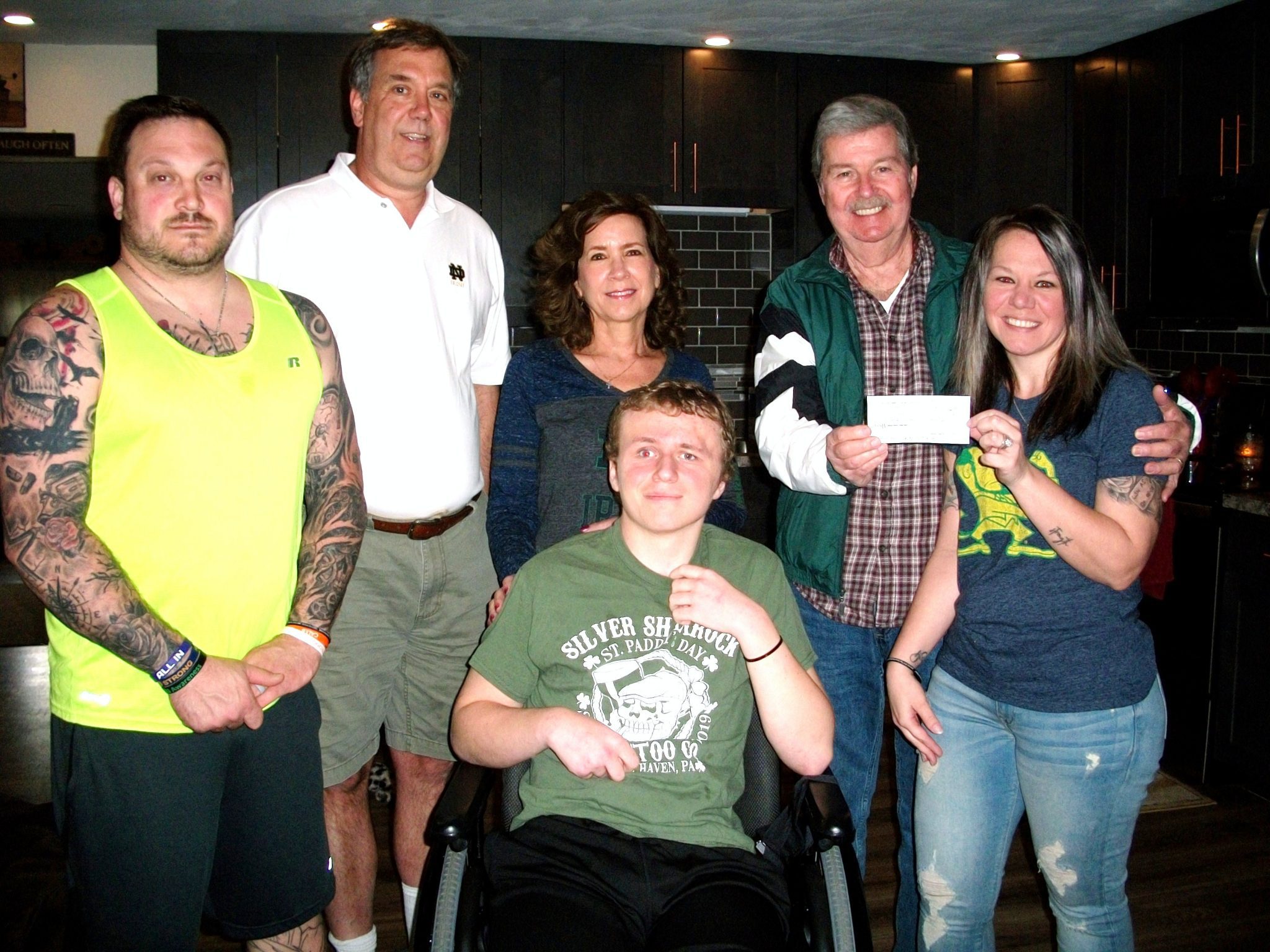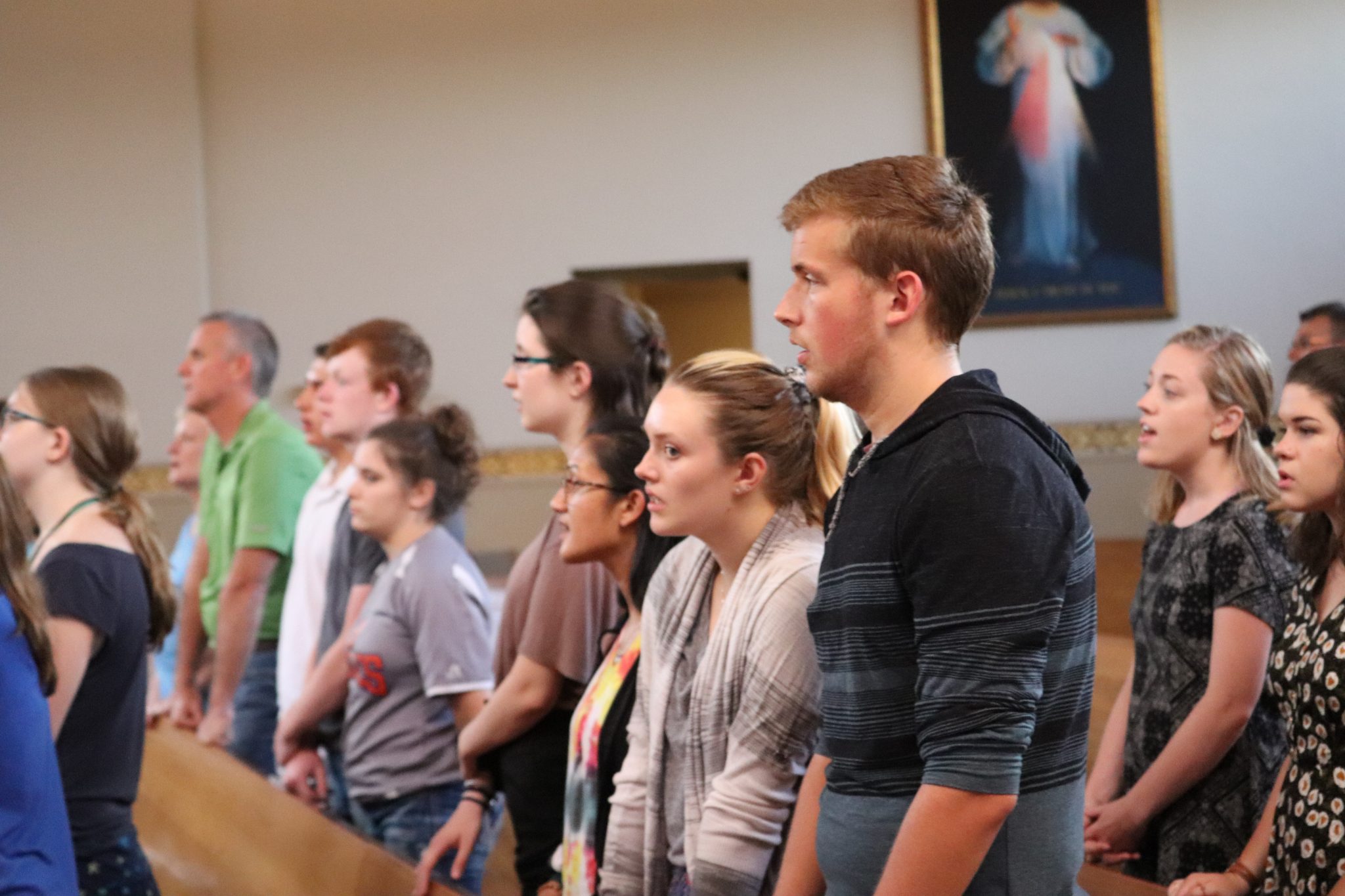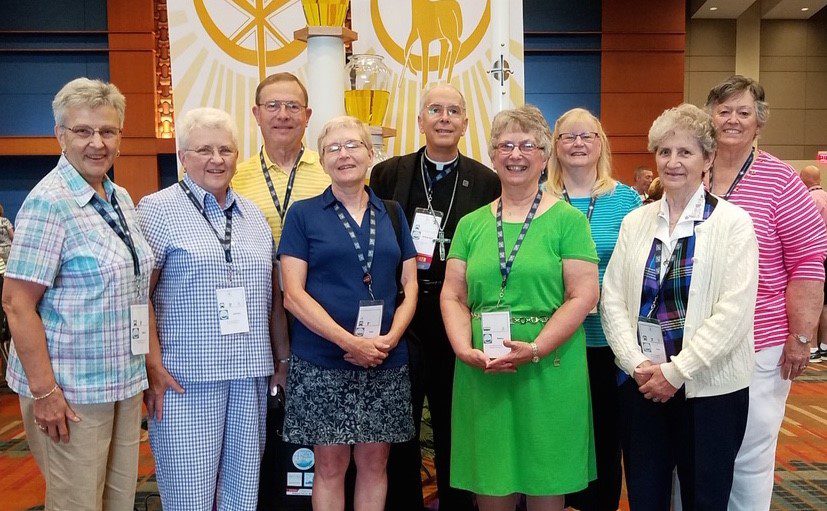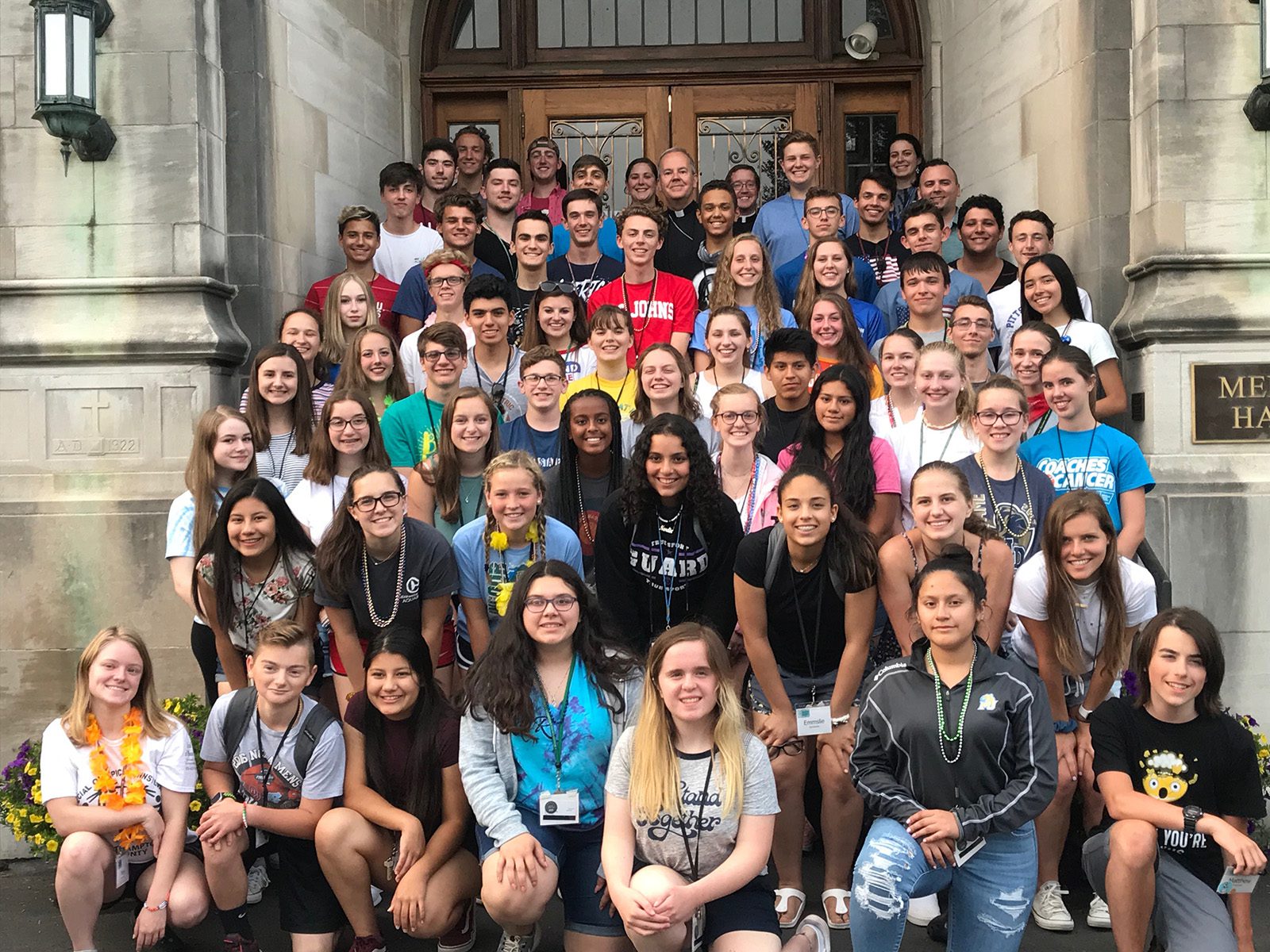SAYRE — Margaret Barry and her husband, Joseph, appreciate the value of Catholic education for their children.
“My family has a long history with Epiphany School. I graduated in 1984 from Epiphany. I think the most important thing Epiphany offers is an education where faith is in action everyday,” Margaret Barry said.
As the 2019-2020 school year gets underway across the 20 Catholic schools in the Diocese of Scranton, the Barry family is just one of many that are thankful for the opportunities available.
“It’s obviously a great academic education but it definitely provides an opportunity for our students to live their faith,” Margaret Barry added.
“The financial sacrifice is worth it because the students here get a great education, starting in kindergarten through sixth grade. They go from learning about history as early as kindergarten and first grade with Sister Ann, all the way up through fourth, fifth and sixth grade with the national parks and STREAM programs and just great science and arts programs,” Joseph Barry said.
With the new school year beginning, the Diocese of Scranton welcomes Mrs. Kristen Donohue as its new Superintendent of Catholic Schools. Donohue assumed her new role in July and will be responsible for ensuring the academic excellence of the more than 4,500 students in the Diocese’s school system.
As she waited for the school year to begin, Donohue used the summer months to visit every building, meet with administrators and focus on new technology initiatives that will be rolled out in the coming months.
“Principals and teachers have been completely immersed in the new initiatives over the summer and are really excited to be able to share these learning opportunities with our students,” Donohue said.
Mrs. Donohue previously served as Principal of Western Wayne Middle School, taking on the dual role of Curriculum Director for the Western Wayne School District. In addition to her administrative roles at both the high school and intermediate levels, Donohue brings nearly a decade of teaching experience to her new position.
Mrs. Donohue will work collaboratively with Mr. Jason Morrison, Diocesan Secretary of Catholic Education/Chief Executive Officer, who is responsible for all administrative aspects of Catholic Education in the Diocese, including enrollment, development, academic success and financial stability.
“The model that the Bishop has developed for the Diocese as it relates to our leadership is working exactly as it should. Kristen’s experience and especially her depth of expertise in academics, I see it every day and it really will make us much better!” Morrison said.
The new school year brings new and exciting opportunities for students in every building. Each Diocesan school has received a new Padcaster, which transforms an iPad into an all-in-one mobile production unit. Complete with microphones, a portable green screen and teleprompter, the students will be able to capture their activities and share them.
“Parents will be able to see first-hand how their students are taking part in promoting the education they’re receiving in the Diocese,” Donohue said.
During the summer months, administrators and faculty members were involved in numerous days of training and professional development.
Representatives from all 20 schools attended the NCEA New Directions STREAM 3.0 Conference in June in Parsippany, New Jersey.
“What is really important to us is not just that we have the technology but that we use it,” Morrison said. “Our goal is to ensure that the technology is utilized to enhance growth and educational outcomes for our students.”
Another key area of change during the 2019-2020 school year will surround student assessment.
The Catholic School System in the Diocese of Scranton has partnered with NWEA (Northwest Evaluation Association) to measure student growth and proficiency in subject areas including reading, math and science.
“Our teachers will have the opportunity to use data that speaks to the individual student in order to really drive instruction that is meaningful and rigorous,” Donohue said.
The new assessments will help provide feedback to teachers to address the needs or concerns for students who may need additional help, while also challenging students who have proficient understanding of the subject material.
“It looks not just at assessment but it looks at growth for students which is really differentiating and honing in on the individual as opposed to how we’re doing across the board,” Morrison said.
“All teachers who teach the student will have the opportunity to look at this data and use it for their instruction so even if they’re teaching social studies, they’ll have the ability to know what each student is capable of and where to really hone in on helping each student,” Donohue added.
As the school year begins, school administrators are excited to welcome students back.
“We’re grateful and we understand and appreciate the sacrifice that parents make to send their children to our schools,” Morrison said. “Our promise is to allow all children to achieve their God-given potential!”
While the Diocese has schools located in varying geographic regions, from Sayre to Stroudsburg, Williamsport to Jessup, Donohue believes that is a strength and sets the Diocesan education system apart.
“It’s a unique, advantageous opportunity to have all the schools in the different geographic areas because it speaks to the importance of understanding the value that each community can bring,” Donohue said.
Our schools welcome the opportunity to show anyone firsthand the outstanding facilities and committed faculty that strive to help students become life-long learners. For more information on our schools, including how to enroll and tuition assistance, you can contact the Catholic Schools Office at (570) 207-2251 or visit www.dioceseofscranton.org/catholicschools

